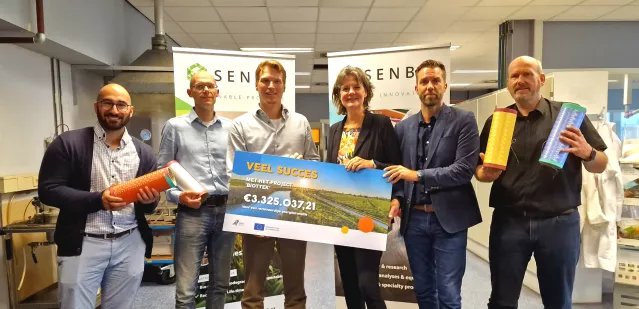
The focus of the project is to find a solution for the enormous microplastic pollution caused by apparel textiles. Over 50 million metric tons of fiber is produced for apparel each year, of which over 60% is polyester (PET). An estimated 500.000 metric tons of this volume is lost in the environment each year through e.g. fiber shedding.
A biodegradable replacement can avoid long term microplastic accumulation. However, many technical and economic challenges need to be considered when designing the polymer and fiber.
New type of biodegradable polyester
Gerard Nijhoving, managing director of Senbis, explains the motivation of the project: ”Our company has been developing fibers and filaments from biodegradable polymers for many years. We know what is possible and too often what is not. With biodegradable polymers it is often challenging to achieve high mechanical and thermal properties."
"For technical yarns and textile fibers, this is often a show stopper. We believe industry needs a new type of biodegradable polyester that can be used for fiber applications which meets both the technical and economical requirements needed for a breakthrough in this field.”
Molecular design and physical properties
In the BIOTTEK project knowledge is gathered and gained on what makes certain biopolymers biodegradable but also what makes them melt spinnable and achieve high performance, looking at molecular design and physical properties. This insight is used to develop new biopolyesters which are evaluated both analytically as through application testing via e.g. melt spinning of fibers.
It is a unique approach to develop a biodegradable polymer specifically for an application, in this case fibers. Another unique element of this project is that Artificial Intelligence (AI) is utilized to speed up the development and to provide new suggestions for molecular design.
The research project consists of the following partners:
- Senbis Polymer Innovations B.V. for polymerization and melt spinning of fibers
- University of Groningen for polymerization and characterization of biopolymers
- NHL Stenden University for processing and assessing various end-of-life scenarios(recycling)
- Wageningen Food & Biobased Research for biodegradability assessment and method development
- TNO for Artificial Intelligence
The research projects started in September 2023 and will run for three years.



